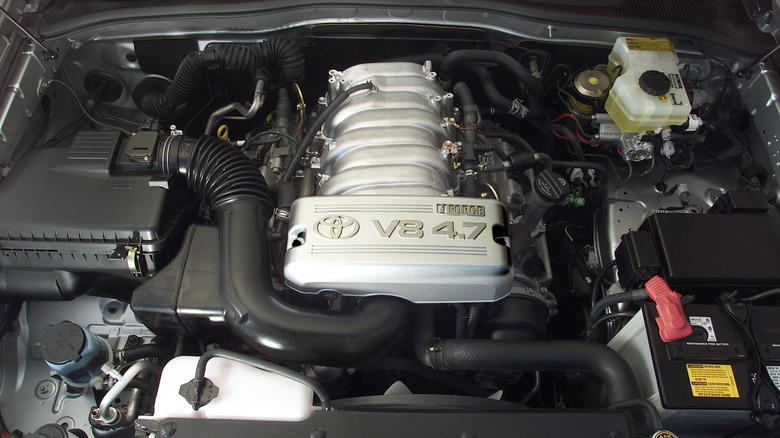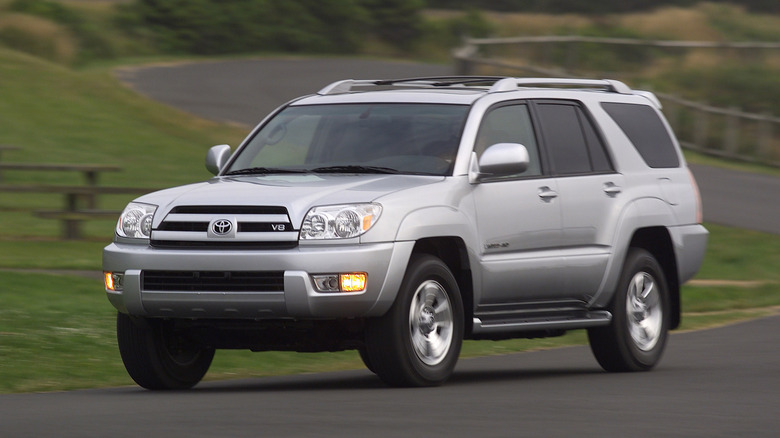Which Toyota 4Runner Generation Used A V8 Engine?
The new sixth-generation Toyota 4Runner is powered exclusively by a turbocharged 2.4-liter four-cylinder engine. In some trims, that four-cylinder engine pumps out 278 hp and 317 lb-ft of torque. In other cases, the turbocharger is supplemented by a hybrid system — a first for the 4Runner — that cranks the juice up to 326 hp and 465 lb-ft. These are stout figures for the off-road-oriented SUV, and when you look at the history of the Toyota SUV, they can help us see just how much the 4Runner has changed over the years.
However, power for the 4Runner didn't always come from a small four-cylinder engine. And, despite the popularity of the previous generation's 4.0-liter V6, that wasn't the pinnacle of cylinder count under the 4Runner's hood, either. The fourth-generation 4Runner, available from 2003 to 2009, was powered by a V8. The V8 wasn't the standard engine, though — that distinction went to a 4.0-liter V6 that put out 245 hp and 283 lb-ft of torque. The optional 4.7-liter V8 was down on horsepower compared to the V6, checking in at 235 hp, but torque was up significantly at 320 lb-ft. Later in that generation, Toyota increased the V8 4Runner's power to a healthier 260 hp — an upgrade that makes the 2009 model one of the best 4Runners ever made.
The effects of V8 power
Compared to the current four-cylinder engine (especially when it's paired with the hybrid system), the V8 is down on power in a big way, but how does it stack up in terms of acceleration and fuel economy? When Car and Driver tested the V8-powered 4Runner in 2003, it accelerated from zero to 60 mph in 8.0 seconds and made its way to the quarter mile in 16.4 seconds. That's not exactly rapid, but it was respectable for such a large SUV in its day. Today, the outlet estimates that the newest 4Runner will make the sprint to 60 mph somewhere in between 6.7 to 7.2 seconds, though it has yet to perform any official tests.
On top of likely being quicker, today's 4Runners are also far more efficient. Depending on the trim level and powertrain, the EPA estimates that the 2025 4Runner will return between 21 and 23 mpg combined. That's not exactly stellar, but it's not surprising given the 4Runner's off-road capabilities and overall size. Between 2003 and 2009, however, the best fuel economy estimate the V8-powered 4Runner could muster was 17 mpg combined, with some models dropping as low as 15 mpg. The lack of a V6 or V8 engine may be a demerit for some shoppers, but having driven the newest 4Runner, we can confirm that it's a thoroughly capable SUV, even with just four cylinders.

